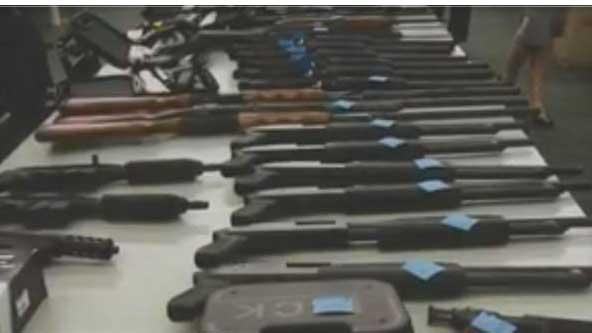Can Gun Background Checks Help Prevent School Shootings?

(CNN) The chance a child will get shot at school is significantly lower if their state has mandatory background checks, according to a study released Wednesday in the journal Injury Prevention. Children also have better odds if their states spend more on mental health and education.
The vast majority of Americans consistently say they want more background checks when polled, but no federal law mandates them, and state laws vary.
Though some have questioned the impact of background checks, researchers wanted to see whether states with them have fewer shootings, as well as to determine other trends around school shootings.
The authors combed through media accounts and found 154 shootings at kindergarten-through-12th-grade schools between January 2013 and December 2015. That's about one a week, a dramatic increase from past decades when there was about one a year, at least between 1966 and 2008.
After totaling the number of shootings, the authors looked closer at where they happened and determined that there were fewer incidents in states that had mandatory background checks for gun and ammo purchases. These states also tended to spend more on education and mental health services. Past studies have showed that increased education (PDF) spending can be a deterrent to crime and gun violence.
Though some of the demographic data of the shooters was unavailable, researchers did see a few other trends. More than 99% of the shooters were male. Most shootings were deliberate. And children who live in urban areas are most vulnerable to getting shot at school.
The researchers said they created this study because there are gaps in knowledge about what factors made a school more vulnerable to shootings. With the increase in the number of incidents, they believe, more than ever, there is an urgent need to find ways to stop them.
"Even having one shooting a year is a horrific event, as school shootings leave a great big scar on a community with long-lasting psychological consequences," said author Dr. Bindu Kalesan, an assistant professor of medicine at the Boston University School of Medicine. "It's as devastating as if we had a volcanic eruption in the neighborhood."
"School shootings are becoming less rare, and that is a big concern," said Daniel Webster, director of the Johns Hopkins Center for Gun Policy and Research, who was not involved in the study. He found it interesting but would add that, based on previous research, the No. 1 factor in shootings is gun ownership.
"When you have a larger number of guns, you see a larger number of shootings," Webster said.
New York, for instance, which has a number of restrictive ownership laws, didn't have a single school shooting in the time studied. The state also has comprehensive approval system in which people can be denied a gun if the approving authority spots a red flag, even if they pass the background check. With that in mind, what one factor matters most "may be hard to tease out," he said.
Shootings at schools do have devastating consequences, not only for the person who has been shot.
Research has showed that shootings can dramatically lower area students' test scores (PDF) and can cause students long-term psychological problems such as post-traumatic stress disorder, even for those who have not witnessed the event.
"Apathy can sometimes set in when there are so many incidents, but one shooting is too many," Kalesan said. "Hopefully, this research can help us work toward a better solution than what we have now."
